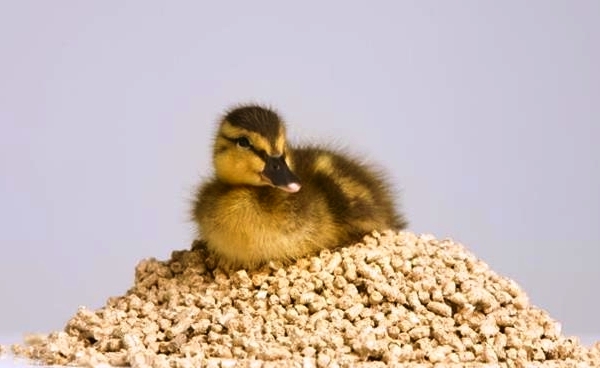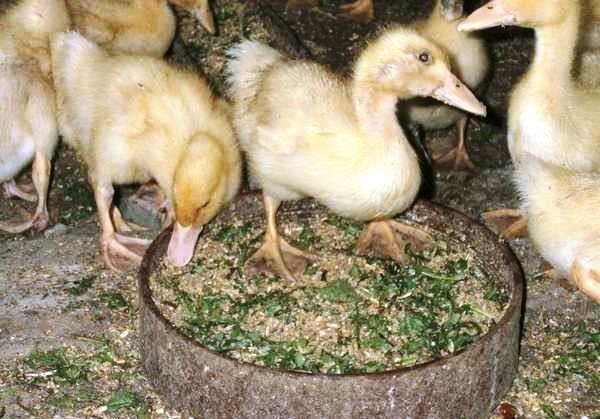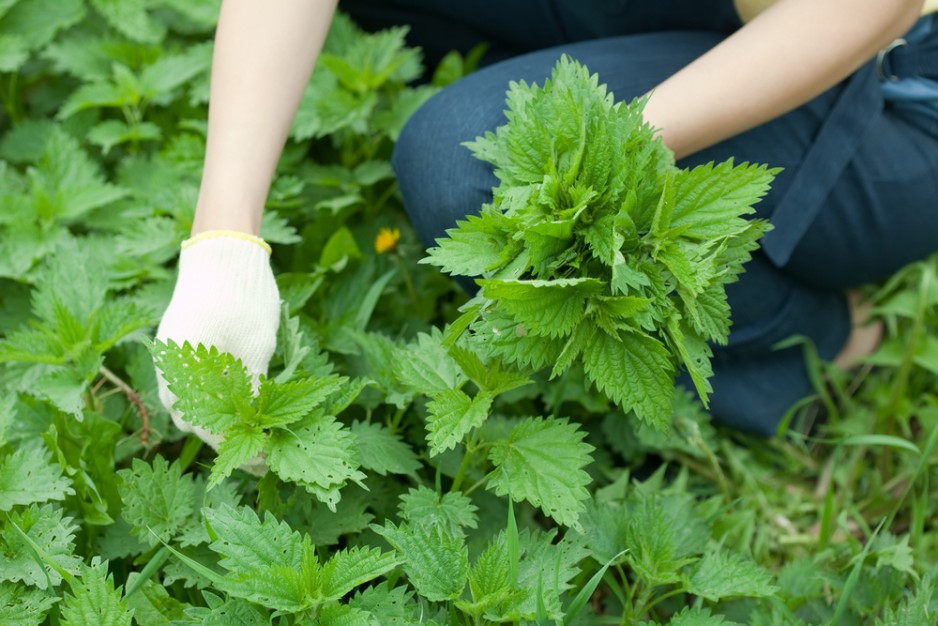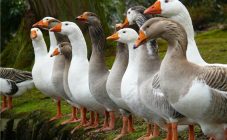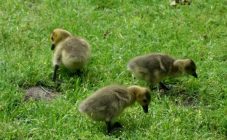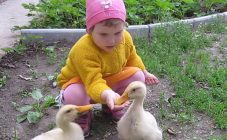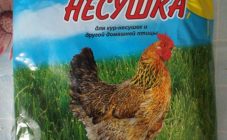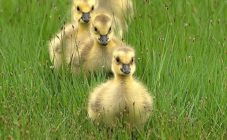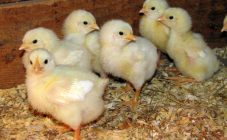Content:
Raising newborn ducklings is not easy, requiring an investment of effort and patience, especially if a poultry breeder is a beginner. One of the most important components that you need to immediately understand and how to plan, having previously found the necessary information - what to feed the ducklings from the first days of life at home. If everything is balanced and thought out at once, then the owners will have a tasty and nutritious duck at the end of the season.
What ducklings eat: diet and types of food
Ducklings that have just seen the light of day need careful care. Therefore, it is very important to decide how to feed the day old ducklings. It is worth remembering that no matter how old the ducks are, the main component of any diet is fresh herbs, without which they cannot do a single day. You need to know what herbs can be given to ducklings, for example, they are very fond of nettles, euphorbia, Chinese cabbage and duckweed. In addition, it will be helpful to mix the main food with calcium sources - chalk, small pieces of shells and sand.
Ducklings prefer to eat:
- Feed containing cereals. At the same time, it is necessary that this particular variety occupy most of their food. Whole grains such as oats, corn, and beans are carbohydrate sources that support the uniform and healthy growth of birds. In addition, ducklings will gain a lot of mass, which is also important.
- The green friends of birds are plants. The main advantage of living in the private sector is access to greenery. In addition to stems and leaves, small pets love to eat root vegetables. To facilitate the chewing process, you can rub vegetables and plants through a grater or simply grind. This is especially loved by mulards, white indocks, mute ducks, musky ducks, and everyone else is not averse to eating similar food.
- If we talk about healthy food for goslings, then these are undoubtedly products processed at industrial enterprises. They have a high content of useful minerals and vitamins. Most often, poultry farmers collect food waste, like potato skins and much more, up to yeast.
- The little gosling will be pleased if he gets food of animal origin. Moreover, it will be very useful. These are dairy products, bone meal, etc.
How to feed ducklings from the first days of life
In fact, everything is not as complicated as it seems at first glance.
Feeding rules from the first week
The most important and difficult question to solve in many cases is how to feed week old ducklings. The most important thing to remember is that the food should be combined. The necessary minerals and trace elements must be present to support the healthy growth of ducklings.
They begin to teach ducklings to wild greens after the third day, after having chopped everything as finely as possible, to facilitate consumption. The amount of grass should not exceed 20% of the total feed. It is necessary to ensure that diarrhea does not develop in small birds, which is quite typical with a not entirely correct diet.
Experienced poultry farmers, with a complete lack of interest in food for ducklings, recommend attracting them with the sound of knocking on the feeder. It also happens that they refuse to eat at all, which is fraught with negative consequences, so you need to adapt to feeding the little one from a pipette with a mixture of yolk and milk.
Feeding and caring for ducklings after 3 weeks of existence
The further question - how to feed two-week-old ducklings is also very relevant, since both taste preferences and needs for the body change with age. Experienced poultry farmers advise starting to give a mash, which is generously diluted with crushed pieces of wheat, bran, flour from bones and eggs, and barley. For all the same ease of eating, you need to properly moisten the mixture, but not overdo it, as this will lead to the nasal openings of the birds, as a result of which they will simply suffocate. For this, whey or ordinary curdled milk is ideal. It is worth giving this food in the daytime, and at night, fill the feeders with compound feed.
It is also worth remembering that an excessively long stagnation of the mash in the feeder can lead to an expiration date. When feeding dry food, it is worth monitoring the amount - the feed should be slightly more than necessary. It is very important that crushed shells, shells and stones are always present in a separate container with the birds. Otherwise, the host may experience indigestion and other problems in birds.
After reaching the age of two months, on average, the birds gain weight about 2000 g, which allows the owners to start slaughtering them. If the poultry farmer wants to fatten even more, there are no complaints, but at this age the meat of the birds is very soft.
Ducklings' nutritional norms
The main thing that a future poultry farmer should understand before purchasing ducklings is why and why he does it. It is also worth determining how long it is desirable for the birds to reach their maximum weight.
There are a few rules to follow:
- ducklings and adult ducks need a constant presence of food and water in the feeders;
- you need to feed several times a day: those who have just been born - up to 7 times a day, and those who have crossed the threshold in 2 weeks - about 5 times a day;
- before switching to feeding with roughage (for example, millet), small ducklings need to be adapted by first giving boiled yolk;
- after 16 weeks of age, you can start switching to food for adult ducks.
The nutritional standards for ducklings are shown in the table:
| Type of feed (quantity) | Ducklings age (up to 9 days) | Age 10 to 19 days | Age from 3 weeks to 1 month |
|---|---|---|---|
| Compound feed | 24 g | 69 g | 111 g |
| Greenery during the summer season | 16 g | 61 g | 91 g |
| Kombisilos during the summer season | absent | 9 g | 19 g |
| Waste food | absent | 16 g | 41 g |
| Needles | 0.4 g | 2 g | 3 g |
| Chopped boiled potatoes | absent | 9 g | 16 g |
| Reverse | 6 g | 11 g | absent |
| Curd | 4 g | absent | absent |
| Eggs | 4 g | absent | absent |
| Duckweed | 11 | 16 | 6 |
| Meat or fish bone meal | 0.6 g | 1.6 g | 4 g |
| Fodder yeast | 0.3 g | 0.6 g | 0.9 g |
| Dried nettle | 0.6 g | 2 g | 4 g |
| Shells | 0.6 g | 1.6 g | 4 g |
| Gravel | absent | 0.6 g | 2 g |
| a piece of chalk | 0.2 g | 0.4 g | 0.6 g |
These standards must be followed in order to maintain the vitality of the ducklings and take care of their health.
Vitamins and minerals for ducklings
Vitamins and minerals are a very important part of bird nutrition, which is the necessary presence in their life for healthy growth. If you avoid eating them, the birds will become sick and will have tasteless meat when slaughtered. To avoid deterioration of the general condition of the birds, it is recommended to dilute the food of the birds with the following:
- the protein, which is contained in curd, dairy products, dilute the mash;
- dressings with mineral content: crushed egg shells, table salt, wood ash, sand, which are placed in a container separate from other food;
- meat and bone or fish meal.
What to feed little ducklings with
Feeding ducklings with food prohibited for their digestion is fraught with dangerous consequences, for example, indigestion and other diseases, so it is very important to know what you can and cannot feed the ducklings.
The lack of any necessary substances will immediately affect the appearance of the ducklings: they will literally "fade away" before our eyes. Immunity will lose ground, exposing the little chick to the danger of contracting infectious diseases. One of the most terrible consequences for any poultry farmer is a halt in growth, so you should be careful when you find out how to feed monthly ducklings or those that are older.
Ducklings should not be categorically fed with the following:
- you should avoid adding flour to the mixture for ducklings, as there is a danger of the formation of a paste that clogs the noses of the ducklings;
- those who understand what ducklings eat know that their most dangerous enemy is bread, be it moldy or fresh, the consequences of feeding are aspergillosis;
- due to perishable properties, it is not recommended to feed the ducklings with porridge, milk, since the consequences are diarrhea;
- if a poultry farmer living in the private sector picked herbs, then it is very important to ensure that no poisonous greens are present there, which can be fatal;
- you need to boil the nettle in boiling water in advance, otherwise it will injure the organs of the ducklings from the inside;
- maple leaves are very dangerous for ducklings, so they should not be given to birds.
Keeping ducklings and then adult ducks is not an easy task, requiring complete dedication and reverent attitude towards pets. And feeding the pets plays a key role here. Preference should be given to food with microelements and vitamins necessary for the development of ducklings, so that in the future they grow evenly and gain a lot of mass. When preparing a mash or feeding with compound feed, certain proportions must also be observed, without overdoing it. It is important to remember that there are foods that are prohibited for ducklings to eat, which can lead not only to digestive upset, but also to death.
